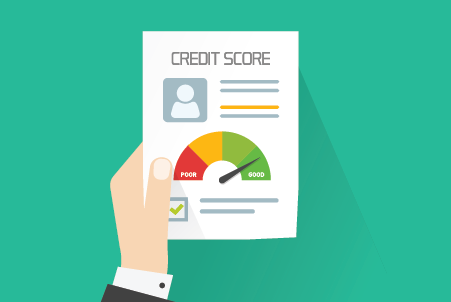If there’s anything more complicated than the real estate business, it’s credit scores. Which, ironically, are one of the more complicated aspects of real estate. They have a, well, you guessed it, a complicated relationship. But it’s also an important relationship so, we’re going to help you make sense of it all.
What is a Credit Score?
Your credit score is a number that represents your credit worthiness. The score is based on your credit report which includes any loans, credit cards or lines of credit in your name. Your score helps lenders determine your ability to pay back the loan, which is a major factor in getting a mortgage. All mortgage lenders pull a report on buyers applying for a loan.
What’s a Good Score?
Credit scores range from 300 to 850 and are usually broken down into categories like poor (300-579), fair (580-669), good (680-739), very good (740-799), and superior (800-850). The higher your score, the more likely you are to pay back a loan. The lower your score, the less likely you are to pay it back. There are also three separate credit bureaus meaning you actually have three credit scores, one from each. Most lenders will use the median of those three scores for your mortgage application.
How Does it Affect a Mortgage?
Aside from determining if you’ll qualify for a mortgage, your credit score plays a role in determining the rate of your mortgage. Buyers with higher scores will receive lower interest rates, while buyers with lower scores will receive higher rates. And if your score is too low, you may not qualify for a mortgage at all.
Can You Increase Your Score?
Absolutely. Your score is determined by several factors including monthly balances and on-time payments. Making regular, on-time payments plays a big role in setting your score. Plus, keeping low monthly balances on credit cards will increase your score. You can learn more about how credit cards can help or hurt your score at our bank partner’s blog(Opens in a new window). Time is another factor. If you’ve had access to credit for years, you’re likely to have a higher score. If you’re younger and a first-time buyer, your score may be low. But, making on-time payments, keeping monthly balances low and avoiding any defaults or delinquencies should keep your score moving up.
Co-Borrowers?
Including a co-borrower is also an option when applying for a mortgage. Today, most married couples who have a mortgage are co-borrowers because their combined incomes and credit scores are likely to afford them a lower rate. But you don’t have to be married to be a co-borrower. For example, if you’re a first-time buyer with a young credit history, one of your parents could be a co-borrower on your loan. You can remove a co-borrower from the loan if it turns out they're not needed before closing.
We could go on and on about credit scores. In fact, don’t be surprised if a future blog dives back into the subject. It’s a complicated one but it’s crucial to understand your credit score and how it can affect your ability to buy a home. If you ever want to know more or have questions regarding your score or a mortgage, the loan professionals at Guardian Mortgage are always ready to help.

